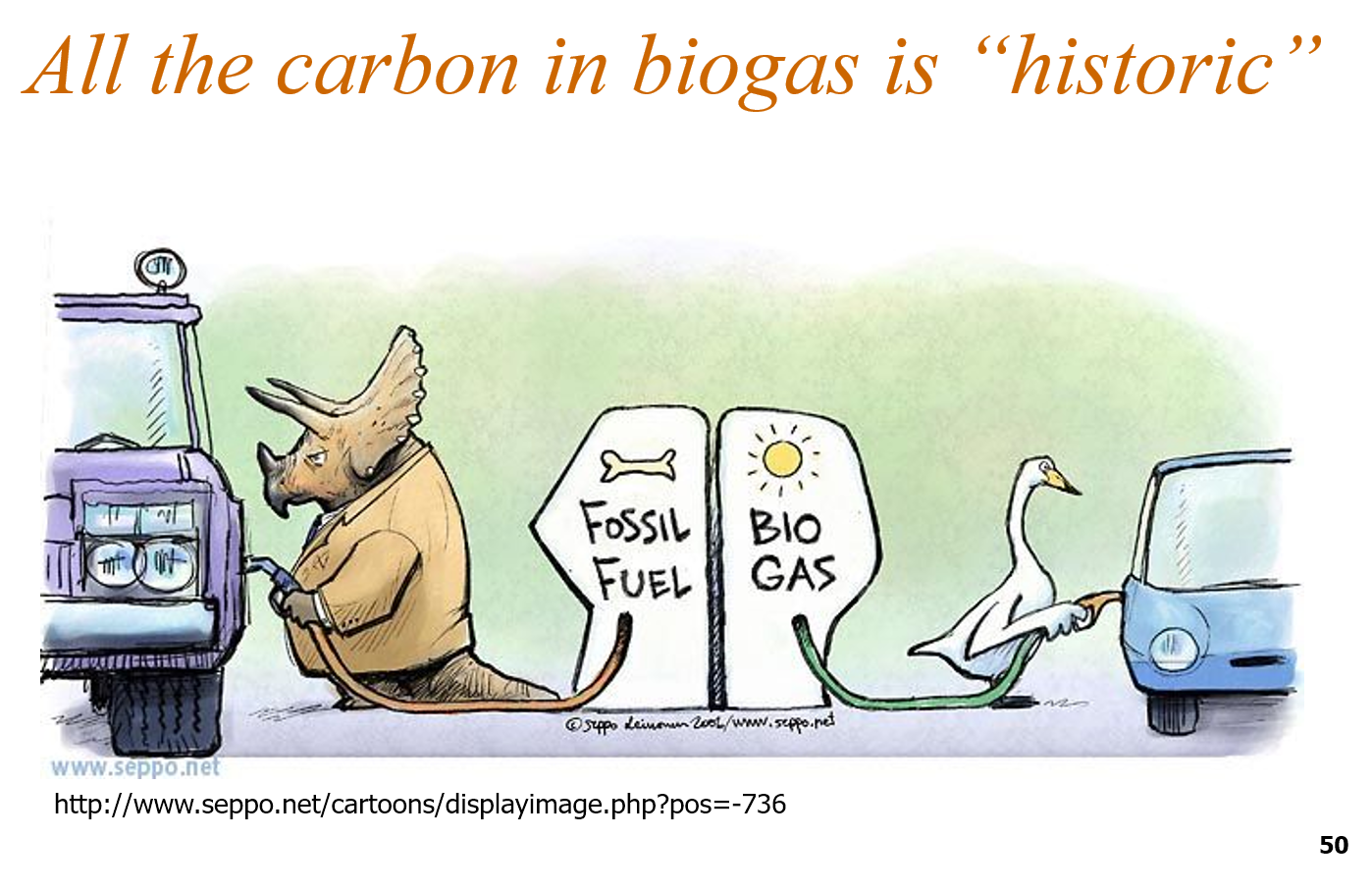The story of food waste and AGCC
(Anthropogenic— human-caused—
Climate Change)
(Clicking on the footnote numbers in the text will take you down to the footnote paragraph (text). The ‘back’ or ‘previous’ button on your browser will likewise be of use. Happy hunting.

Globally, we throw away about a third of the food we produce. In the US, some estimates are that we toss out about 40%, and according to some sources, that much amounts to more than 1200 calories per person per day in wasted food. What usually happens then is that almost all of the wasted food ends up in a landfill, where it is buried. Microbial life quickly uses up the free oxygen, and the food bolus goes anaerobic. The biology shifts, and the anaerobic life begins to produce methane.
Methane, in turn, is a very powerful greenhouse gas. We used to think that it was only 21 to 25 times worse than an equal weight of carbon dioxide, but now we know that the true figure is higher (33 to 105 times as bad). It is primarily because the impact of methane is so dramatic that the impact of wasted food is so dramatic.
In a most astonishing statement, the UN FAO says that if the greenhouse impact of food waste were ranked as if it were the output of one of the world’s nations, it would be third, after the US and China. That is, the impact of global food waste on climate change is greater than the GHG emissions of the entire sub-continent of India, all sectors included. Further, according to the Environmental Defense Fund (EDF), the production of methane accounts for “about 25% of the man-made global warming.” Finally, the chief scientist of the EDF has said that “By emitting just a little bit of methane, mankind is greatly accelerating the rate of climatic change.”
You can see, therefore: This is not a small problem.
Potential GHG impact
Obviously one of the outcomes towards which we are aimed is to divert as much food waste as possible from landfilling to the deliberate production of methane. Some may think “Well gee. If the greenhouse gas impact of methane is so bad, then why in the world would anyone deliberately produce it?” The answer is simple. When producing methane in a biogas digester by anaerobic digestion, we capture that methane and subsequently burn it, extracting energy from the wasted food, and reducing the greenhouse gas impact of the methane to something between 1% and 3% of what it was before. That is because methane is converted through oxidation to carbon dioxide and water.
CH4 + 2O2→ CO2 + 2H2O
We assume that every ton of food waste thus diverted into our digesters will produce ~12,000 ft3 of methane, which is then oxidized into the far less problematic by-products of combustion. In addition, clearly, most or all of that methane would have been produced ‘in the wild’, and now it will not be. Thus, it will not have contributed to climate change. We can make a difference.
Yes, but what kind of difference can we make?
The bottom line is that one person’s action will not save the planet. No one of us is as powerful as all of us, and these problems will have some impact on everyone (although mostly they will impact the poor). The problem of global climate change erases any border except those which stop the wind from blowing across.
This problem is so large and so entwined with the core of the way we think and live that the only path to full success may require a wholesale change in our views about ourselves and the planet. We used to be an exhibit; now we are the zookeeper.
So no, we few will not stop the march merely because we are taking action against food-waste-generated wild methane. It is not that. Rather, it is that each of us has a responsibility for our own actions, and by taking proper action, we can on the one hand insure that we are being ever more true to that responsibility, and on the other that we might just add to the fund of inspiration which causes others to change. We will be putting our shoulder against a lever that must be moved. We will be on the right side of history.
In this instance, it would be hard to find a practical action that would drive our own carbon footprint as deeply negative — reversing our personal contribution to global climate change— other than making biogas out of as much food waste as we can, because of the dramatic impact methane has on GCC. Yes, we should use efficient lights, and eat less beef, and so on. But here, because of this new digester, we also have a far greater measure of a far more impactful option than we ever previously had:
